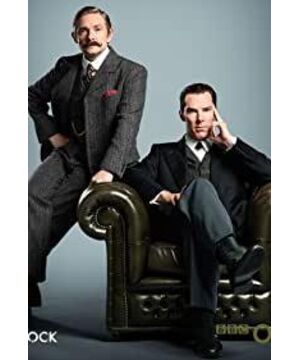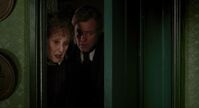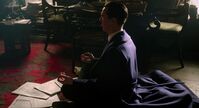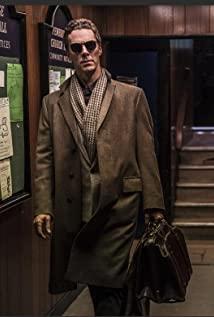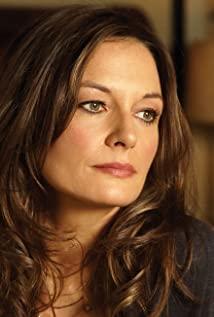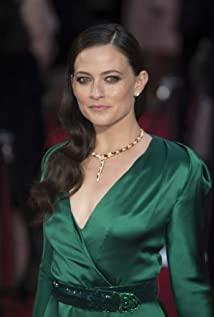Written by: Zhao honesty
(This article was first published on Pengpai Youxi https://mp.weixin.qq.com/s/mg_HjVOtquWK61mVOa_gvw )
In the "Sherlock" Christmas special, Sherlock Holmes entered his own mind palace and broke into Britain at the end of the 19th century. There he met Emilia Rickelty, the "Abominable Bride" who had risen from the dead. With the help of the Watsons, Sherlock gradually discovered that the case was related to an extreme feminist movement.
In 2015, a series of films reflecting the feminist movement and spin-off characters such as lesbian ("Carol"), female warrior ("Mad Max 3"), female spy ("Spy"), female robot ("Mechanical") Ji") and other collective appearances.
Even a movie like "Sherlock" in which a man plays the leading role also sings praises for the feminist movement, which I never imagined before watching the movie.
In the opening introduction of the film, screenwriter Steven Moffat particularly complained that modern British men could not cook, and all housework was undertaken by women; then the landlord, Mrs. Hudson, complained that Watson made a line in her manuscript to the newspaper. There are no lines; the forensic doctor Molly appeared in men's clothing, accusing the forensic industry of sexism; the tough Mary asked Watson to neither go home, solve the case nor take her with her... The female characters who should be honest and green leaves are like eating Like gunpowder, they compete to make a "feminist voice" in the movie.
In particular, Emilia Rickelty, the "hateful bride" who killed her husband with one shot, took her name directly from the British feminist leader Emmeline Rickley from the late 19th and early 20th centuries. Emmeline Pankhurst.
Before the 20th century, as the film describes, women were virtually invisible in politics.
Patriarchy (patriarchy) has long been referred to as "God's order" by European churches and governments. The wife's disobedience and resistance to her husband's rule at home is not a conflict within the family, but is to be punished as a violation of God's order.
Protestant reformer Martin Luther also said: "If they (women) talk about things other than housework, it is very inappropriate for them...Women are made for housework, and men are made for politics, For secular rule, for war and debate in court, for governance and leadership."
By the 18th century, the "feminine nature theory" that claimed that women were inherently inferior to men was still entrenched throughout Europe. Women are confined to the family, with no public life and little access to education.
During the Victorian era, the rights of British women expanded as industrialization accelerated and employment increased. The implementation of the compulsory education system in 1870 enabled more and more women to enter higher education institutions; at the end of the 19th century, through the "Married Women's Property Rights Act", married women finally obtained the right to independently dispose of their property. Women of any origin, once married, lost their citizenship and property rights, and could not freely dispose of their property; by the beginning of the 20th century, the prosperous tertiary industry provided women with more employment opportunities outside their homes.
According to statistics, there were 124,843 female employees in England in 1911, compared with 170 maids per thousand households from 218 in 1881. In "Downton Abbey", Gwen actively learns typing and shorthand, hoping to leave the manor to become a secretary, which is a reflection of this historical change.
At the same time as women's economic education and economic independence, women's self-awareness begins to awaken. Obtaining equal rights to vote with men was the goal of the feminist movement at that time.
By 1894, the British Local Government Election Act had stipulated that married women had the same right to vote as single women, but the National Parliament had not yet opened the door to women. Even in the Declaration Against Women's Suffrage, published in 1889, it wrote: "Women cannot compete in these branches (parliamentary politics, financial commerce, and running the state) because of physical strength or habit."
At first, British women launched petitions through peaceful means, or hoped to negotiate with political parties to promote the issue of suffrage. But in the eyes of the lords of the council, this was just a ridiculous game. The lords paranoid that women contributed almost nothing to human civilization: "Even if Sappho never sang poetry, Joan of Arc never fought, Siddens never played, George Eliot never wrote Joy, knowledge, and gain will not be diminished in the slightest." Herbert Asquith, who became prime minister in 1908, said more blatantly: "Women know nothing about politics."
With little success in peaceful petitions and speeches, British women, under the leadership of the British Socio-Political Union (WSPU) headed by Emmeline Pankhurst, turned to radical action to fight.
Women, while not shooting in the street or carrying out assassinations like we see in Sherlock, have done everything from disrupting rallies of politicians and organizing demonstrations to smashing windows, setting postboxes on fire, and blowing up the villas of ministers and councillors. ...not less at all. Women in the Union were widely characterized by martyr fanaticism, and at a horse-racing convention, Union member Emily Davidson even rushed to kill herself in front of a King George V racehorse to gain public opinion.
The submissive wife has become a "hateful bride", and the fierce action has been suppressed by the government, and a large number of women have been monitored and detained by the British government. In prison, the women continued their struggle with a hunger strike. The government uses force-feeding, or temporarily releases women when they are exhausted, and waits for the opportunity to make repeated arrests after they recover, which is called a "cat-and-mouse game".
In the stalemate, when violent terrorist attacks were most likely to get out of control, World War I broke out. In the face of national interests, Emmeline called on the Allies to stop atrocities and actively participate in wartime work to fill the jobs left by men.
That is, the first world war in human history made the British see the power of women. Prime Minister Baldwin commented that it was the sacrifice of British women in World War I that made the protests against women's suffrage melt away.
Shortly after the war, Britain passed the People's Representation Act, which gave 8.5 million women over the age of 30 with property the right to vote as a reward for their outstanding contributions to the war; 10 years later, another People's Representation Act gave them the right to vote. Universal suffrage for all adult women, the initial goal of the feminist movement was finally achieved.
The story of Emmeline Pankhurst and the British Socio-Political Alliance has been made into a film many times. "Feminist Voices: The Age of Fear", released at the end of 2015, once again vividly reproduced this women's protest movement. In the film, Emmeline exclaims: "We fight for the day when every little girl born will have the same opportunities as their brothers. Never underestimate the power we women have. We can define our own destiny. We're not going to break the law, we're going to make the law." This was the voice of the feminist movement in the early 20th century.
This film is quite particular about the choice of roles. Helena Bonham Carter, who plays the feminist Edith, is the great-granddaughter of Prime Minister Asquith, who was strongly opposed to giving women the right to vote. Emmeline Mel Streep, who played Pankhurst, had just won the best actress crown for her role as Mrs Thatcher in "The Iron Lady". This is nothing less than a metaphor. Without the rise of the British feminist movement, how could there be an Iron Lady in world history?
View more about The Abominable Bride reviews


